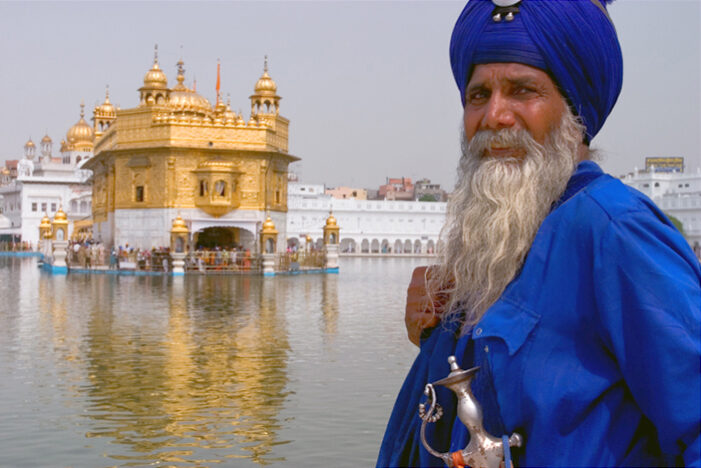Chandigarch : High quality global journalism requires investment. Please share this article with others using the link below, do not cut & paste the article. See our Ts&Cs and Copyright Policy for more detail. Email ftsales.support@ft.com to buy additional rights. India is far more like the EU than a classic nation state. It is a multi-ethnic, multicultural society in which more than 22 official language groups coexist, each with its different customs but bound by a shared colonial history and contemporary political structures. Within this mosaic, stereotypes of ethnic, religious or caste groups are rampant. Indians casually make sweeping generalisations — and jokes — about compatriots from other groups .
High quality global journalism requires investment. Please share this article with others using the link below, do not cut & paste the article. See our Ts&Cs and Copyright Policy for more detail. Email ftsales.support@ft.com to buy additional rights. This shocked me when I arrived in the country. Bengalis, for example, are considered loquacious book lovers, all talk and no action. Gujaratis are said to be shrewd businesspeople. Parsees, a religious minority descended from Zoroastrian refugees from Persia, are seen as eccentric, with an unusually high proportion of unmarried men. South Indians are mocked for their strong accents and their dependence on coconut oil. But none seems to be the butt of as many jokes as the tiny Sikh minority. Followers of a faith that arose in the 15th century, Sikhs are today just 2 per cent of the population. During British rule they were considered a “martial race”, and they continue to take prominent roles in the army. The community has also produced leading politicians such as Manmohan Singh, the former prime minister, a serious-minded economist credited with unleashing market reforms as finance minister in the early 1990s.
Even so, Sikhs are popularly seen as good-natured, generous, fond of food, drink, music and dancing; generously endowed with brawn but lacking in brainpower. The stereotype of Sikhs as affable simpletons is epitomised in a strain of humour known as Santa-Banta jokes — silly stories about Sikh characters named Santa and Banta, whose naive confusion about a word or situation provides the punch line.
Some Sikhs want to call an end to the ridicule and have taken their case all the way to the supreme court. Harvinder Singh Chowdhury, a lawyer, has appealed to the court to ban Sikh jokes by blocking humour websites and preventing stereotypical portrayals in Bollywood films. “These jokes have become such a part of Indian life that Sikhs are not able to survive without being humiliated,” Ms Chowdhury told me. “These jokes are enjoyed as casual fun but the Sikh community is feeling ridiculed.” Powerful Sikh organisations have thrown their weight behind Ms Chowdhury’s petition. supreme court judges have expressed sympathy for the community’s bruised feelings but have questioned the practicalities of a ban. Still, they have appointed a Sikh committee to devise a potential “mechanism” for such a ban, which is expected to generate plenty of heated discussion in coming months. Ms Chowdhury’s petition reflects the way a growing number of Indians are looking to the state to restrict words they deem offensive to their own community, despite the constitution’s guarantee of free speech. The colonial-era penal code permits suppression of creative works offensive to others’ religious sensibilities. India also has laws to ban hate speech, comments that incite violence or denigrate the most disadvantaged communities — especially the erstwhile “Untouchables” at the bottom of the hierarchical Hindu caste system.
High quality global journalism requires investment. Please share this article with others using the link below, do not cut & paste the article. See our Ts&Cs and Copyright Policy for more detail. Email ftsales.support@ft.com to buy additional rights. But many see a ban on Sikh jokes as a step too far. “You can’t legislate a society where people are polite to each other,” says Karuna Nundy, a supreme court lawyer specialising in human rights cases. “Yes, there is a certain kind of society that we want, where people respect each other and don’t stereotype. But I don’t think that criminalising political incorrectness is the answer.” Paradoxically, the man responsible for the popularity of Santa-Banta jokes was a Sikh. Khushwant Singh, who died two years ago aged 99, was the author of several titles on Sikh history and a gut-wrenching novel about the 1947 partition. He also had a wicked sense of humour.He was, in fact, the living affirmation of another common perception about Sikhs: that they have a great sense of fun, including an ability rare in south Asia to laugh at themselves . Yet the brouhaha over these jokes is surely evidence, if any was needed, that ethnic stereotypes don’t always apply.


You must be logged in to post a comment Login